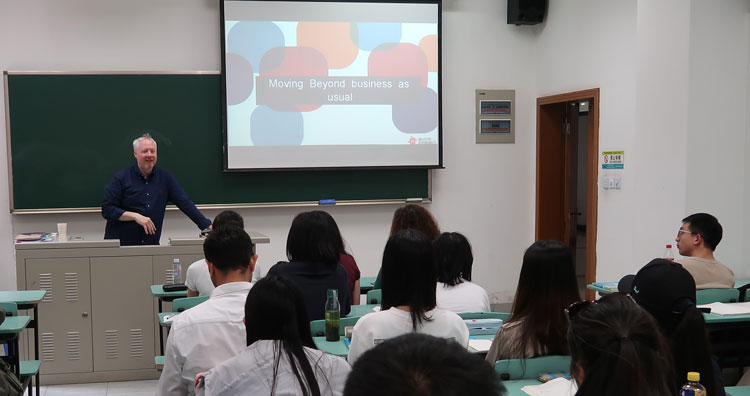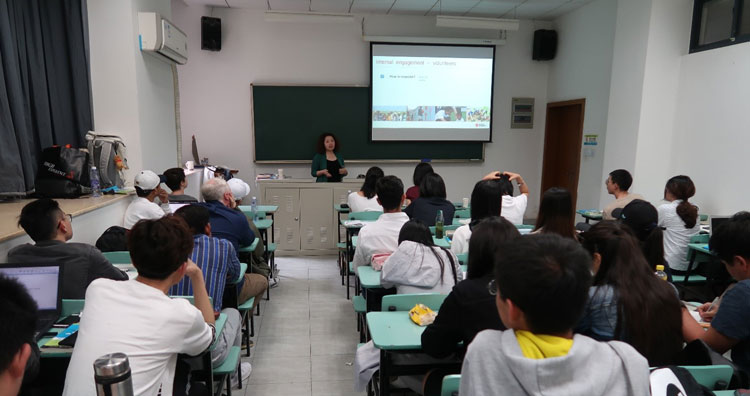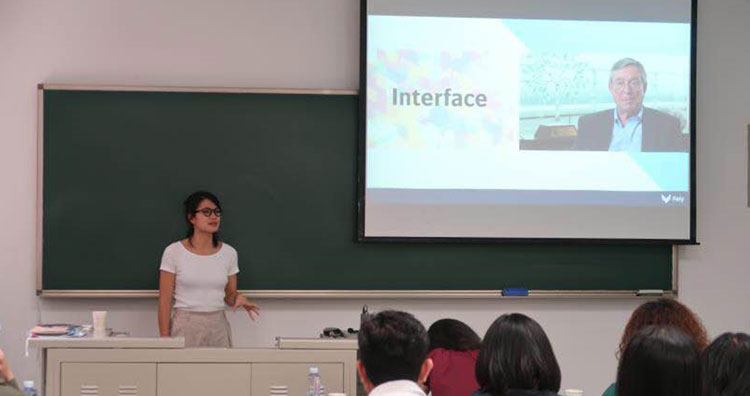Last Friday, as part of our student program’s initiative, Collective Responsibility brought together a panel of speakers at Shanghai University to discuss corporate social responsibility and social impact assessment.
To provide real world insights leaders and seasoned CSR practitioners, we therefore invited Richard Brubaker, Founder of Collective Responsibility, Joy Qiao, Senior Consultant at Collective Responsibility and Yanyie, Co-Founder at Feiy to share their experience with the attendees.

MEASURE THE IMMEASURABLE
Richard kicked off the event by sharing the importance of driving awareness of key social challenges to existing economic and business models. He then introduced the single largest CSR programs CR team has been working on to date, which is to support client’s effort to enhance the lives of over 3 million workers in its supply chain and their left behind children.
In order to tackle the specific and serious social issue faced, CR began looking for a technological solution with the goal to improve the connections and emotional bond between parents and their left behind children.
Richard shared the development of this program, its ongoing challenges faced, including the discussion and debates with team members and outside consuls regarding the design of our theory of change and what shall be the key measurement indicators to assess such social impact. It’s a working progress.

DEVELOPMENT of CSR IN CHINA
Joy shared with the audience her long-term career experience in the areas of CSR from working for the government backed biggest charity foundation in Shanghai, switching to the fortune 500 corporate world and eventually choosing a CSR and sustainability focused start-up to consolidate experiences gained from both sides and connect the dots.
Joy shared some of the milestones of different stages of CSR development in China witnessed in her professional journey.
Taking the 2008 Sichuan earthquake as an important turning point when civil consciousness of Chinese people was awoken, more and more Chinese companies and industry leaders have gradually understood the importance of CSR and see it as an important way to compete with their global counterparts.
Joy then showcased what constitutes a “good” CSR program by using some real business cases including the best practices, and not so successful case examples, and provided her insights into how to measure the output of the program using simple tools such as score cards.

PURPOSE DRIVEN BUSINESS
Finally, Yanyie shared with the audience the importance of embedding CSR programs and sustainability strategies into existing business model from a social entrepreneur’s point of view.
She talked about the gradual shift of societal and individual needs, and the trends and benefits of a more purpose driven business approach spanning the perspectives from market trend, brand image, employee engagement and till business performances.
The students showed strong interests about this topic and raised various interesting questions during Q&A with all three speakers discussed about different challenges and difficulties faced in their daily work and business as well as the highlights, rewarding and satisfying moments experienced doing the work they are doing.
The first of 2019 events, we look forward to engaging with more schools throughout the year.
To learn more about our student engagement program, please visit our page here
